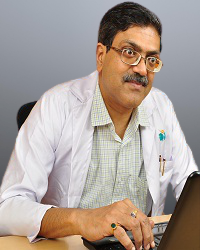Best Rheumatoid Arthritis Doctors in Kolkata
Rheumatoid arthritis (RA) is an autoimmune condition that primarily affects the joints, causing inflammation and pain. It is a chronic condition that can worsen over time if left untreated, causing joint damage and affecting other organs such as the heart, lungs, and eyes. The symptoms often associated with RA include joint pain, swelling, stiffness, and fatigue. Despite the chronic nature of this disease, it can be managed to a large extent using medications, lifestyle alterations, physical therapy and in severe cases, even surgery. One’s susceptibility to RA can be influenced by various factors such as genetics, gender, age, smoking habits, obesity, hormonal changes, infections, and even early life exposures.
In Kolkata with a high population density, understanding and addressing conditions like RA becomes paramount. Luckily for the city’s inhabitants, Apollo Hospitals has some of the best rheumatoid arthritis specialists who are well-equipped to handle this disease. Patients in Kolkata can consult the doctors for rheumatism at Apollo Hospitals to avail a holistic approach towards managing this condition, ensuring improved quality of life and well-being.







 Call Now
Call Now



